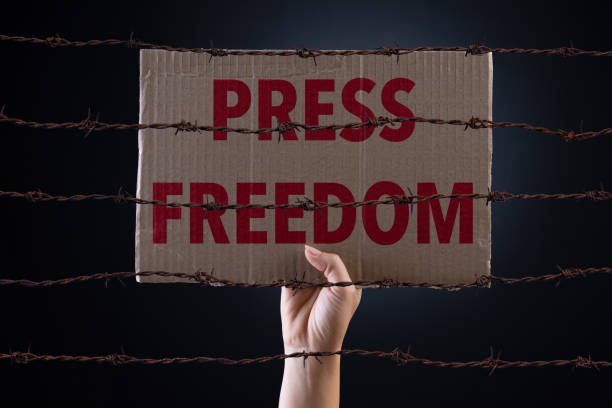- Have any questions?
- [email protected]
The Pitfalls Surrounding Press Freedom in Nigerian Politics

Why Inclusion Must Matter In Nigerian Politics
27 December 2022
Why You Should Collect Your PVC NOW
27 December 2022Three months to the 2023 polls, things are getting messier, muddy and personal. On December 12, 2022, the Board of Editors of ThisDay Newspaper and Arise Television said that it had received two different requests to fire two news reporters – a request that was allegedly made by senior members of the All Progressives Congress (APC) campaign organisation. This proposal has triggered debates on press freedom and journalists’ neutrality in Nigeria.
Press freedom is the extent to which journalists and the media can report on events and issues without fear of censorship, intimidation, or reprisal. It is an essential aspect of a functioning democracy, as it allows for the free exchange of ideas and holds those in power accountable. In Nigeria, press freedom has faced many challenges over the years. The government has historically been known to restrict the media, and journalists have faced intimidation, harassment, and even physical attacks. The situation has improved somewhat in recent years, but there are still significant issues with press freedom in the country. Progress some have deemed will be under threat if APC Presidential Candidate, Bola Ahmed Tinubu, emerges as the winner of the 2023 polls. Critics of Bola Ahmed Tinubu have maintained that these demands from the APC team indicate that Tinubu will choke press and media freedom in the country.
Fola Folayan (@thefavoredwoman) commented on Twitter, “Dele Alake & the Tinubu’s campaign writing to Arise TV to remove Rufai from The Morning Show is the height of ridiculousness & an indication of what their attitude will be towards independent media if you allow them into Aso Rock. Their response to criticism will be censorship”
One major challenge to press freedom in Nigeria is the existence of laws restricting freedom of expression. For example, the Nigerian Penal Code includes provisions that criminalise defamation and libel, which can be used to silence journalists who report on sensitive or controversial issues. In addition, the Nigerian government has been known to use emergency decrees and other legislation to restrict the media, such as during political unrest or conflict.
In the past months, ARISE TV News anchor Rufai Oseni had repeatedly called for Bola Tinubu to present himself for debate and discussion. Moderating and organising the discussions of the political public sphere is one of the major duties of the media – press freedom and Nigerian politics are closely related. The media plays a crucial role in shaping public opinion and holding those in power accountable. However, there are often tensions between the two, as the government and political elites may seek to restrict the media to maintain control or prevent criticism.
Neutrality in Journalism and News Reporting
The APC Presidential Campaign Council had cited the ownership and administration of ARISE TV as one of the reasons why their candidate will not be attending any of ARISE Townhall Meetings. In a skating release, the council accused ThisDay and ARISE group of partiality. The lack of independence of the media – many media outlets in Nigeria is owned by political elites, which can lead to self-censorship or bias in reporting. It is recommended that journalists and media outlets need to strive for neutrality and objectivity in their reporting to provide accurate and balanced information to the public. However, it is also essential to recognise that complete impartiality is often challenging to achieve, as all individuals have biases and perspectives.
Media organisations can strive for neutrality by following ethical journalism standards, such as accurately and fairly reporting events and issues and disclosing any conflicts of interest. It is also important for media organisations to have editorial policies in place that promote fairness and balance in their reporting. Ultimately, it is up to the public to evaluate the neutrality and objectivity of journalists and media outlets and to make informed decisions about the sources of information they choose to consume.

